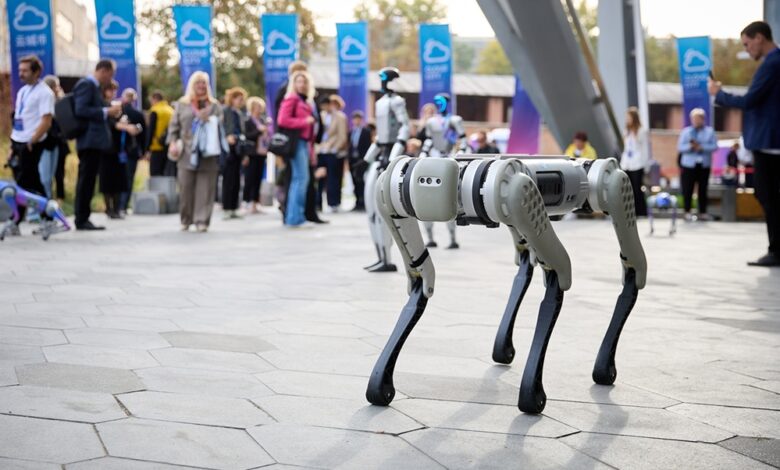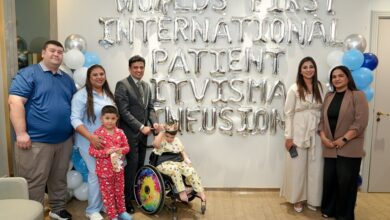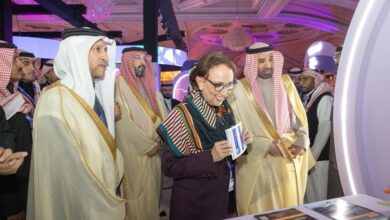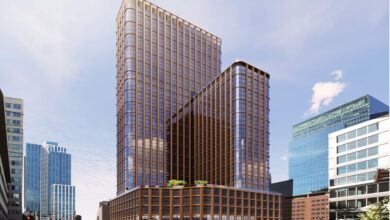BRICS Urban Future Forum “Cloud City” Concludes in Moscow

The BRICS Urban Future Forum “Cloud City” has concluded in Moscow. The forum was held for the third time, and this year robotics and artificial intelligence were among the key themes. On September 17–18, experts discussed prospects for the technological development of urban infrastructure, revolutionary approaches to digitalizing the urban environment, the role of robots in the modern metropolis, and the risks of the rapidly approaching digital future for residents of BRICS cities. Over the course of two days, the forum was attended by more than 13,000 people from 42 countries.
The event welcomed 29 delegations from 21 countries. Guests arrived in the Russian capital from the UAE, Qatar, Saudi Arabia, Oman, Turkey, Malaysia, as well as from Europe, South America, and Africa. The business program of more than 50 sessions brought together leading global experts in innovation, technology, urbanism, and futurology.
This year the forum gathered more than 460 speakers and delegates — including government officials, urbanists, futurists, architects, and other experts shaping the agenda around the cities of the future. Among them were Ayesha Bin Bishr, global smart city expert, former CEO of the Dubai Digital Development Agency and former Deputy Chairman of the Board of Directors of EMAAR Development; Sultan Al Raisi, Chief Operating Officer of Sandbox Dubai within the Dubai Future Foundation; Aref Alabbar, Chairman of the Bela-Middle East Business Organization; Talal Alansari, CEO of Creators Bay Media; and other experts from the Middle East.
At the session “The Technological Framework of the City: The Space of the Future,” global city leaders discussed how modern technologies shape the foundation for urban competitiveness, as well as issues of the hybrid economy, digital infrastructure, robotics, and platform solutions that will define the megacities of tomorrow. One of the key participants in the discussion was Ayesha Bin Bishr, who described three stages in the development of smart cities: initially simple digitalization and reduction of paperwork; then the integration of systems and creation of unified ecosystems; and today, a shift toward human-centered transformation.
“Technology is only a tool, not an end in itself. The question is no longer what technology we buy, but whether the innovation makes people happier, reduces inequality, and strengthens resilience to climate change,” she said. According to her, citizens’ trust is the key factor: without it, even the most advanced systems cannot function.
Sultan Al Raisi, Chief Operating Officer of Sandbox Dubai within the Dubai Future Foundation, spoke about innovative strategies being developed in Dubai and the main goals of introducing new technologies in the UAE.
“Services are developing very quickly, as are platforms, but regulators lag behind. How can we make platform-cities in the future? The Dubai government decided to act. The first decision was to create a sandbox — a citywide initiative for innovation collaboration. It is a platform for creative minds. We give innovators the tools they need to succeed: certain regulatory relaxations, access to expertise, legal consultations, and the ability to reach policymakers,” said Al Raisi.
Other key speakers at the forum included: Yanis Varoufakis, author of the concept of technofeudalism; Rae Kwon Chung, Nobel Peace Prize laureate; and Dr. Kate Barker, Chief Futurist of NEOM, strategic advisor to the UAE government and Fortune 500 companies, who presented the concepts underpinning one of the most ambitious megaprojects — the city of NEOM in Saudi Arabia.
“We are delegating decision-making to AI. It will manage resources and even help resolve family disputes for the 9 million residents of the city of the future. The main challenge is how ethical and transparent this governance will be,” said Barker.
“For us, AI is first and foremost a companion. Each person will have an AI twin with your skills. It constantly monitors your health and advises which competencies to develop, for example through contact lenses. NEOM is conceived as a laboratory for these ideas — and as a reason for a global conversation about the boundaries of artificial intelligence in governing society.”
Alongside discussions on the future of megacities, the forum hosted the BRICS Urban Innovation Award ceremony. The award categories covered areas such as smart cities, climate initiatives, digital healthcare, artificial intelligence, and robotics. The award was established by the BRICS Urban Future Forum “Cloud City” and the BRICS Chamber of Commerce and Industry, with the participation of experts from the UN’s specialized digital technologies agency — the International Telecommunication Union (ITU).
The jury included Rae Kwon Chung, Nobel Peace Prize laureate; Natalia Mochu, ITU Regional Director for the CIS; Sameep Shastri, Vice Chairman of the BRICS Chamber of Commerce and Industry; Nicholas Yu, Executive Director of the Guangzhou Institute for Urban Innovation; and other distinguished experts in urban innovation.
Moscow won in the category “Human-Centered Robotics.” The jury praised Russia’s capital for its global leadership in comprehensive urban robotics and advanced autonomous systems, highlighting the launch of the driverless tram, the autonomous cleaning robot “Pixel,” and the robotic monitoring system for construction sites. The award was presented to Moscow by Dr. Kate Barker, Chief Futurist of one of the world’s most ambitious city-of-the-future projects, NEOM in Saudi Arabia.
Robots themselves became key participants of the event — the forum brought together more than 35 devices with various functions. One of the mechanical highlights was the Russian cleaning robot “Pixel,” presented in a new model equipped with a vacuum system for cleaning debris in parks and city streets. The upgraded Pixel model allows for more effective handling of dust and leaves, particularly during seasonal transitions — an innovation of special importance for municipal services.
For the first time, robots also became part of the business program. At the session “City, AI, and Robots: Readiness for the Transition to a Hybrid World,” the humanoid robot Ardi shared its vision of a reality where artificial intelligence and robots are an integral part of urban infrastructure, while the robot Avatar — whose emotions and speech were transmitted in real time from a human operator — served as the virtual moderator of the forum’s business program.




